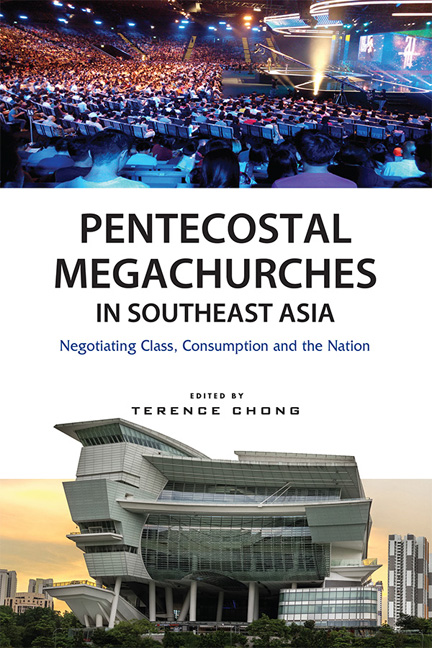Preface
Published online by Cambridge University Press: 04 July 2018
Summary
The idea for this volume on Pentecostal megachurches in Southeast Asia began to form in 2015 after I had completed several papers on megachurches in Singapore. There were several recurring themes in the Singapore cases which I found interesting. The congregations of Singapore megachurches were generally youthful and infused with energy and idealism. They had an optimistic worldview that stood out from the well-worn apathy typical of today's youth. I also found a strong and mutually reinforcing link between the spiritual and material world. This link, often manifested as the Prosperity Gospels, has drawn much criticism from other Christians. However, deeper ethnographic effort will suggest that this link is more than material accumulation for personal satisfaction. Instead material accumulation is, it is believed, a tangible measure of one's obedience to God; less of a reward but a by-product of faithfulness. Meanwhile, their deep engagement with contemporary culture has resulted in an inclusive outlook that is experimental, playful, and always open to the possibility of imputing secular events and actions with theological meaning in order to get God's message across to non-believers. This has also meant that their Christian identity is often writ large in the workplace. Finally, the expansionist visions of their leaders often come through. The drive for souls was always going to be a numbers game but megachurch leaders are less hampered by the modesty or conservatism of their mainline counterparts. Such visions go beyond filling up auditoriums but include aggressive church-planting in neighbouring countries such that local megachurches enjoy a second wing in the region.
All these findings not only distinguish newer Pentecostal churches from older mainline denominations, but also demonstrate an ability to participate in mass consumption, pop culture and modernity like no other church. The fact that Pentecostalism is one of the fastest growing communities in Singapore suggests that these trends would only continue. As I dwelt on these findings, it became apparent that they needed to be set against the broader region.
- Type
- Chapter
- Information
- Pentecostal Megachurches in Southeast AsiaNegotiating Class, Consumption and the Nation, pp. vii - viiiPublisher: ISEAS–Yusof Ishak InstitutePrint publication year: 2018



